Chilcot report: The inside story of how Tony Blair led Britain to war in Iraq
A detailed insight into the deals, alliances and meetings that took place from the moment the first plane hit the north tower on September 11 2001
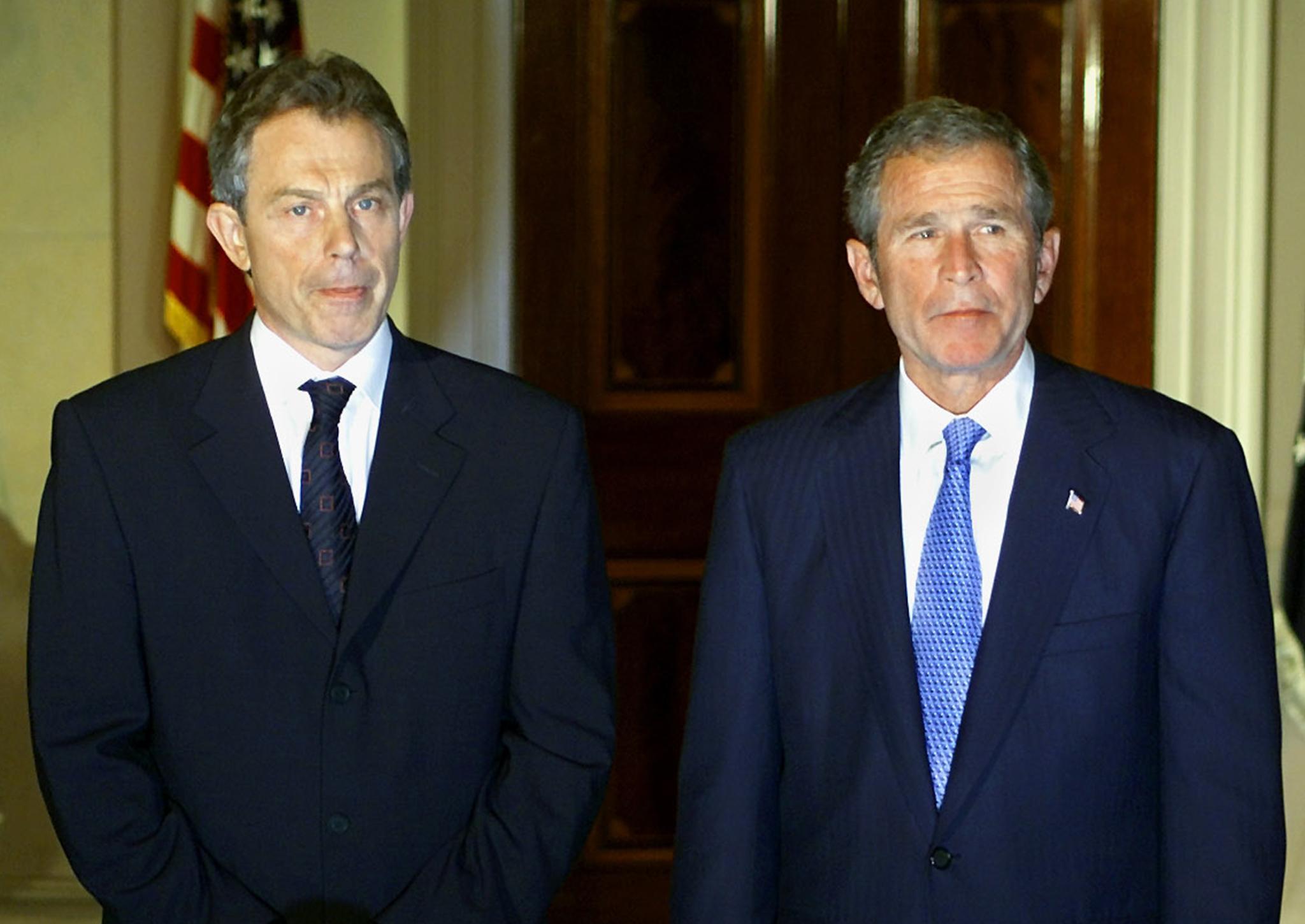
Tony Blair was in a hotel room reading through the speech he was due to deliver to the TUC annual conference when Alastair Campbell came bursting in and insisted that he switch on the television. At 1.46pm British time, a Boeing 767 passenger airliner had hit the north tower of the World Trade Centre in New York. The south tower was hit 17 minutes later.
Follow our latest updates on the Chilcot report
The Prime Minister grasped at once that what he was seeing, from the Grand Hotel, Brighton, on 11 September 2001, was seminal, a pivotal moment in world affairs. There would obviously be a reaction from the US government that would be felt across the world: and whatever the US did, Blair decided, the UK must back them up.
“TB said that we had to help the US, that they could not go it on their own, that they felt beleaguered and this would be tantamount to a military attack in their minds,” Campbell recorded in his diary.
Tony Blair was not, of course, the only head of government to promise to be at America’s side as it embarked on what became known as the “war on terror”. One of the first world leaders on the phone to Washington was the German Chancellor Gerhard Schröder. The day after the attack, he reported to the Bundestag that he had promised Bush “Germany's full – I repeat, full – solidarity.”
The first foreign head of government to visit the smouldering remains of New York's Twin Towers was France's President Jacques Chirac one week after the attack. Standing on US soil, he announced: “France, I can tell you, will not stand aside in a fight against a scourge that defies all democracies.”
Though neither Chirac nor Schröder said so at the time, their promise of support was not unconditional: it depended on what the US decided to do. Within 14 months, Schröder and Chirac were meeting to co-ordinate their opposition to the planned invasion of Iraq.
But when Tony Blair broadcast from Downing Street on the evening of 11 September, promising that “we here in Britain stand shoulder to shoulder with our American friends”, there was no unspoken codicil. He fully intended to go wherever the Americans went.
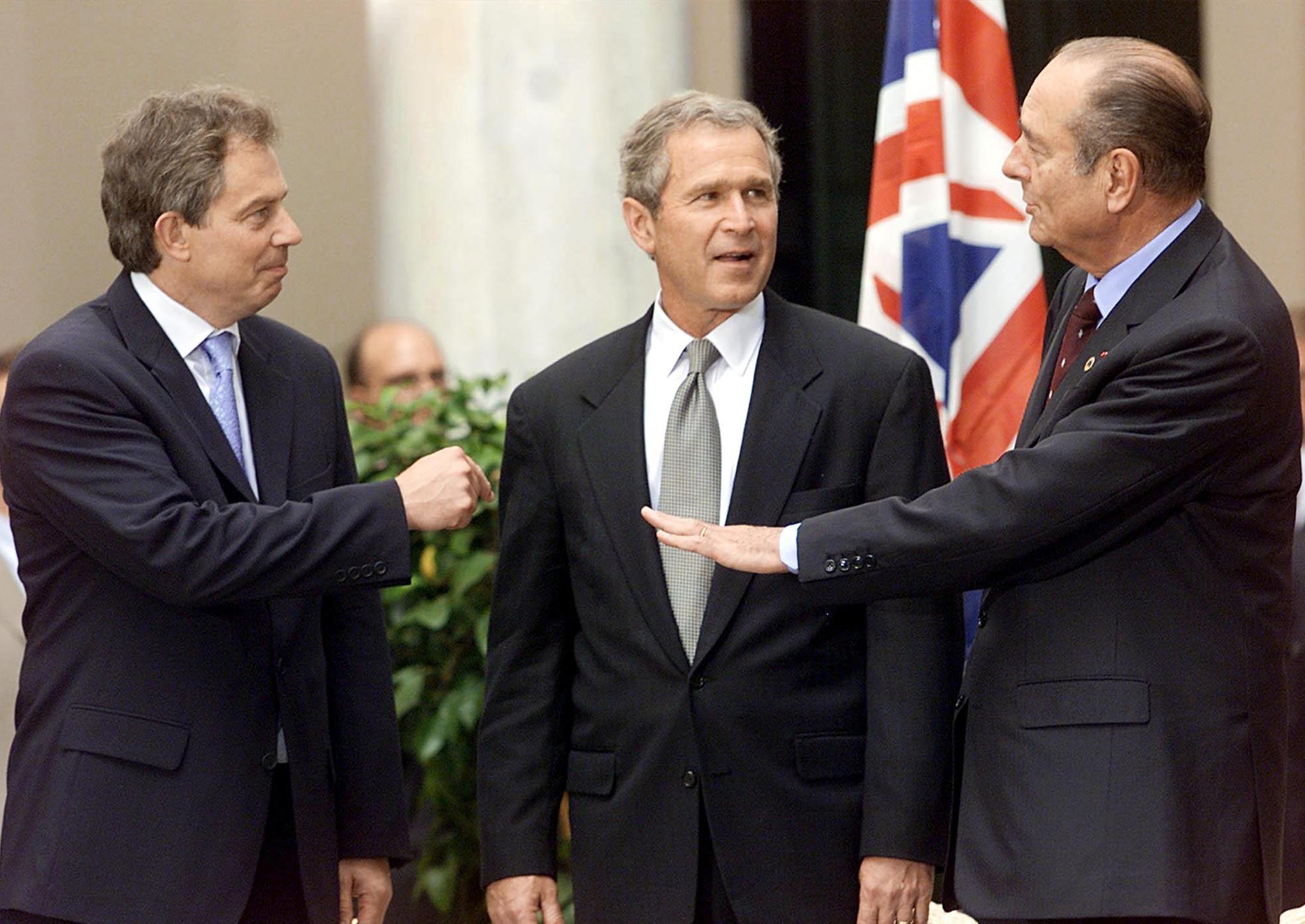
That unwavering commitment was arguably the most important decision that Tony Blair ever made. It was also, arguably, the worst. It defined the remainder of his premiership, and would pursue him in his semi-retirement. Even Margaret Thatcher, despite her great affection for Ronald Reagan, never put British foreign policy so thoroughly in the service of the US. If the long-awaited Chilcot report inflicts more harm on Tony Blair's reputation, it will be because of an unwavering resolution he made on the spur of the moment, in a hotel room in Brighton, more than 13 years ago.
Meanwhile, there was an immediate decision to be made about the Prime Minister's scheduled address to the TUC Congress. A text of his speech was ready. A press officer, Godric Smith, was in the media room at the Brighton conference centre among a crowd of journalists transfixed by the television images, wondering whether he should distribute the copies of the speech he held under his arm, or shred them.
As Blair made his way from hotel to conference centre, news came through from New York that the north tower had collapsed. The ghastly truth was that everyone who was still in that building was dead. All the passengers in the two planes were also dead. It was being reported that another plane had hit the Pentagon. Then the south tower also collapsed, and there were reports of a fourth plane crashing near Pittsburgh. The death toll was sure to be measured in thousands. An early estimate was that 10,000 were dead.
The speech was abandoned. After a few impromptu remarks to the delegates, Blair took the first train back to London, to meet his security chiefs. He was fretting that George W Bush, under intense pressure to react swiftly, might be driven to do “something irresponsible.”

His first meeting was with the head of MI5, Stephen Lander, and the chair of the Joint Intelligence Committee, John Scarlett. The security services would run into heavy criticism within two years, but on day one, they got the story right. They told Blair that there was no reason to think that the New York attacks were the work of any foreign government, because there was one organisation capable of planning and carrying it out unaided. That was al-Qaeda, whose leader, Osama bin Laden, was hiding out in Afghanistan. George Bush was told the same thing later the same day by the head of the CIA, George Tenet.
It was the worst attack America had suffered since Pearl Harbour. Then, it was obvious what President Franklin Roosevelt had to do: he declared war on Japan. There was no such obvious reaction for Bush: the terrorists who carried out the attack were already dead, and there was no target against whom he could order immediate retaliation.
Sensibly, Bush decided nothing that day. As Tony Blair told Parliament, when it reconvened for a one-day emergency session on 14 September: “President Bush and the US Government have proceeded with care. They did not lash out. They did not strike first and think afterwards. Their very deliberation is a measure of the seriousness of their intent.”
In fact, the first thing President Bush did when he arrived at work at 7am the following morning was ring Tony Blair. Relieved that the President had not rushed headlong into some ill-thought out action, Blair gave him an unequivocal promise to support the US in whatever the President decided to do. “There was no equivocation in his voice,” Bush recalled. “The conversation helped cement the closest friendship I would form with any foreign leader. As the years passed ... some of our allies wavered. Tony Blair never did.”
There was an element of political calculation in Blair's stance. The Conservative Party was days away from electing a new leader, Iain Duncan Smith. Blair did not then know how brief and unsuccessful Duncan Smith's leadership would be, but he knew from observing the Thatcher-Reagan friendship and from his own close ties with Bill Clinton how valuable it was for a prime minister to be seen to be a welcome guest in the White House. He did not intend to let Duncan Smith get closer to Bush than he was.
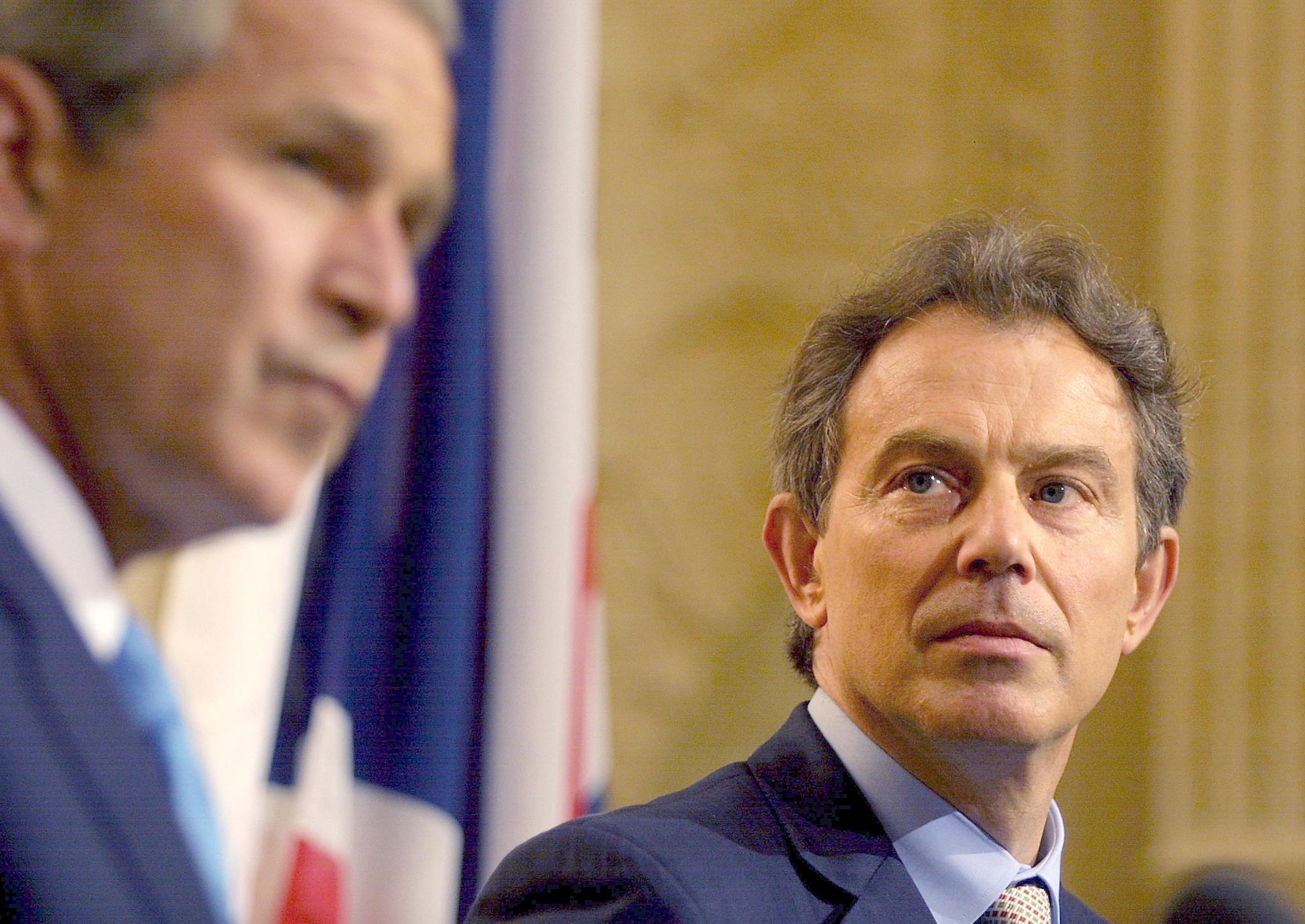
But Blair also had an ideological world view, which he had set out in a speech in Chicago in 1999, in which he had gently rebuked the US government not for interfering in the internal affairs of other states but for being, if anything, too shy of using its military power to spread western values. “Non-interference has long been considered an important principle of international order ... but the principle of non-interference must be qualified in important respects,” he said.
In that speech, he had named two dictators the world would be better off without. One was Serbia's Slobodan Milosevic, who was overthrown in 2000. The other was Saddam Hussein, who still ruled Iraq.
Yet when he was questioned by MPs in Parliament on 14 September, and a Labour maverick named Paul Marsden mentioned that Nato might bomb countries whose governments were hostile to the US, Blair exhorted MPs to not pay attention to “the wilder pieces of speculation.”
The speculation was less wild than he implied. Within 24 hours of the 11 September atrocities, Bush was being urged by his Vice-President, Dick Cheney, Defence Secretary, Donald Rumsfeld, and Rumsfeld's deputy, Paul D Wolfowitz, that he should take aim not just at terrorists, but at governments suspected of harbouring them. Wolfowitz was particularly adamant that Baghdad should be the first target. For the time being, however, Bush was persuaded by his Secretary of State, Colin Powell, that what US public opinion expected was action against the perpetrators of the 11 September outrage. That meant going first into Afghanistan, where Bin Laden was enjoying the protection of the Taliban government.
On 20 September, Bush made a speech to Congress that was televised live and watched by 80 million Americans. Before he did so, however, he took time to welcome a particularly honoured guest. Tony Blair was in Washington.
Bush ushered him into the White House Blue Room for a 20-minute private chat, so that he could confide in him that they were not just going to bomb Afghanistan, but send ground troops too. Blair was flattered to be given this personal briefing so soon before a speech that could make or break his presidency, but Bush said that he “appreciated the company of my friend.”
The bombing of Afghanistan began on 7 October 2001, drawing that wretched country into one of the longest wars in modern history, which would cost the lives of 453 British servicemen, more than 2,000 Americans, and no one knows how many Afghans. The United Nations began counting Afghan civilian deaths in 2007, and had reached 11,864 by 2011.
It was arguably a longer, bloodier failure than the Iraq war, but it was never as damaging to Blair's standing at home. It did not provoke mass street protests or a major parliamentary rebellion, because the links between the Taliban, al-Qaeda and the 11 September attacks was well understood, so the British public at least understood why troops had gone into Afghanistan.
Meanwhile, the idea that Iraq would be next had never been ruled out in Washington. On 29 January 2002, George Bush delivered the annual State of the Union address, in which he used the phrase “Axis of Evil” to describe three regimes which had next to nothing in common with one another, except their hostility to the US - North Korea, Iran and Iraq.
Of the three, Iraq was the one most in Washington's sights. Colin Powell, the Secretary of State, feared that a unilateral invasion would be a political disaster, but he was finding that he could not get the same access to the Oval Office now enjoyed by Rumsfeld. With the cabinet divided, the British Prime Minister became a backstage player in American politics.
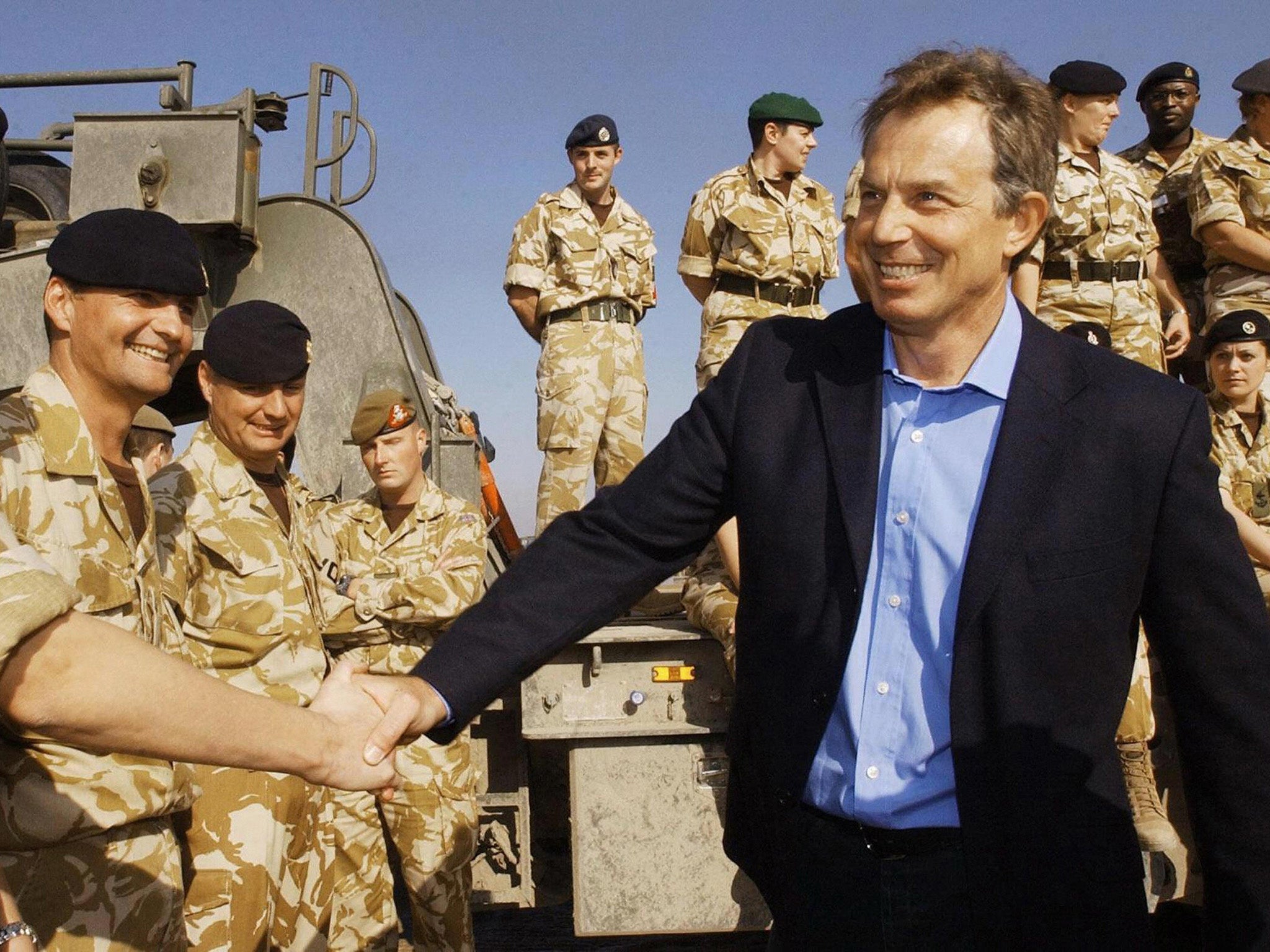
In April, Tony and Cherie were George and Laura's guests on the Bush ranch in Crawford, Texas. Blair knew that he was going to have a delicate job persuading Labour MPs, if not the public, of the case for invading Iraq. The issue had come up at a Cabinet meeting on 28 February, when the Home Secretary, David Blunkett, had raised the “unsettling speculation” that Donald Rumsfeld was itching to go to war. He was backed up by Robin Cook, the former Foreign Secretary, who had been supplanted the previous year by Jack Straw. Cook warned that military action in Iraq “will not be supported in Europe”, while most Arab leaders would say that the biggest menace in the Middle East was not Saddam Hussein but Israel's hardline prime minister, Ariel Sharon. “Somewhat to my surprise this line provokes a round of 'Hear hears' from colleagues, which is the nearest I've heard to a mutiny in the Cabinet,” Cook noted in his diary, The Point of Departure.
A few days later, when Dick Cheney passed through London, stopping over for a private meeting with Blair, Alice Mahon, a quietly spoken but very determined and well-liked left-wing MP, surmised that they were discussing Iraq and decided to act. She started collecting the signatures of fellow MPs for an Early Day Motion, which was effectively a petition not to drag the UK into war. She eventually accumulated 162 signatures – predominantly Labour but with a sprinkling of Lib Dems and Scottish and Welsh nationalists.
Until we have seen the correspondence between Blair and Bush, we cannot know exactly what was agreed in Crawford, when the two men talked privately before dinner on the night of Saturday 6 April. There is no doubt that Blair urged Bush to go to the UN and secure a resolution that would give international legitimacy to an invasion, if one took place. Unless or until the Chilcot report proves otherwise, it will also be assumed that Blair hinted or promised in return that if US troops went into Iraq, British troops would be there alongside them.
That was certainly what the accompanying British press pack picked up. “Tony Blair declared for the first time last night that Britain was ready to take military action against Iraq,” the Daily Telegraph reported the next day. The Daily Mirror, then edited by Piers Morgan, ran the headline: “Blair the poodle has become the Dog of War.” Sir Christopher Meyer, who was present in Crawford as Britain's Ambassador to the US, formed a similar view. He told the Chilcot inquiry: “I am not entirely clear to this day... what degree of convergence was, if you like, signed in blood at the Crawford ranch.”

Blair replied to Meyer's claims in his memoirs, in language revealing that one of the many complications is that Blair and his people did not trust or confide in the ambassador. It was “a myth”, Blair claimed, that he had signed a promise “in blood” to go to war. Meyer “was never present at the Bush meeting, wasn't even in the same building; I made no such commitment...”
Committed or not, Blair's people started work on presenting the case for invading Iraq, to be put both to the United Nations, and to the British Parliament.
First, Britain and the USA needed to agree why they were going to war. The simplest and most intelligible reason was that Saddam Hussein was a vicious dictator. For some people that alone justified the invasion. For the Government, however, it presented insurmountable problems. Unlike the Taliban, whose government was recognised by only three other states, Iraq was a recognised member of the UN that had been ruled by the Ba'ath Party since 1968 and by Saddam Hussein personally since 1979. The UN was due to hold a disarmament negotiating forum in May 2003, and, under its rules, it would be Iraq's turn to chair it. There was nothing in the UN rules which said that a member government could be overthrown by military force because its ruler was a tyrant.
Even if there had been, the West's record in relation to Saddam Hussein was inconsistent. The first time the Ba'ath Party seized power in Iraq, in 1963, it was backed by the CIA. When it returned to power in 1968, its disregard for civil rights or human life was apparent from the start, but Western governments looked kindly on Saddam after the Iranian revolution of 1979 because of his ruthless way of dealing with Shia terrorists. During the long war between Iraq and Iran, the British government formally banned arms sales to either side; but when the directors of a Coventry firm, Matrix Churchill, were charged with selling military hardware to Iraq, their trial collapsed as it became apparent that they had done so with the covert approval of the Ministry of Defence.
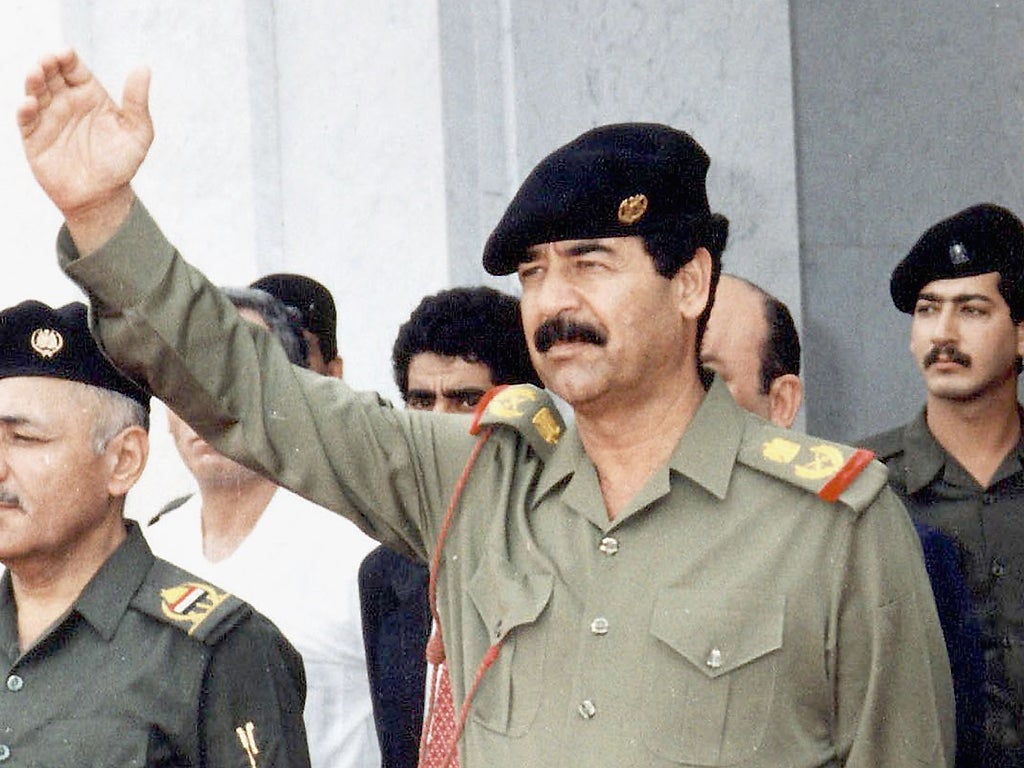
Even when Saddam Hussein's regime killed thousands of Kurdish villagers with an aerial poison gas attack on Halabja, in northern Iraq, in March 1988, the British government took six months to express its disapproval, and took no further action.
It was only after Iraq invaded Kuwait in August 1990, threatening the West's oil supplies, that the cruelty of Saddam Hussein's regime became embedded in Western consciousness. Even so, the coalition that drove the Iraqis out of Kuwait in 1991 did not include in its war aims the overthrow of Saddam Hussein or the ending of civil rights abuses within Iraq. Clearly, then, if there was to be a second Gulf war fought under UN auspices, some other pretext had to be found. The invaders would have to provide evidence that they were acting in self-defence.
That would have been no problem, if only it could be shown that Saddam Hussein was implicated in the 11 September attacks. Most Americans thought he was. A poll for the Washington Post, taken in September 2003, six months after Saddam's overthrow, showed that 69 per cent thought it “likely” that he was implicated. The American public took their cue from the top. None of the hijackers who carried out the 11 September attacks was Iraqi: they were all from Egypt or Saudi Arabia, but in autumn 2001, a story emerged that their leader, Mohammed Atta, had met an Iraqi intelligence agent in Prague. That was proof enough for Dick Cheney, who declared on CNN in December that it was “pretty well confirmed” that the Iraq government had colluded with al-Qaeda.
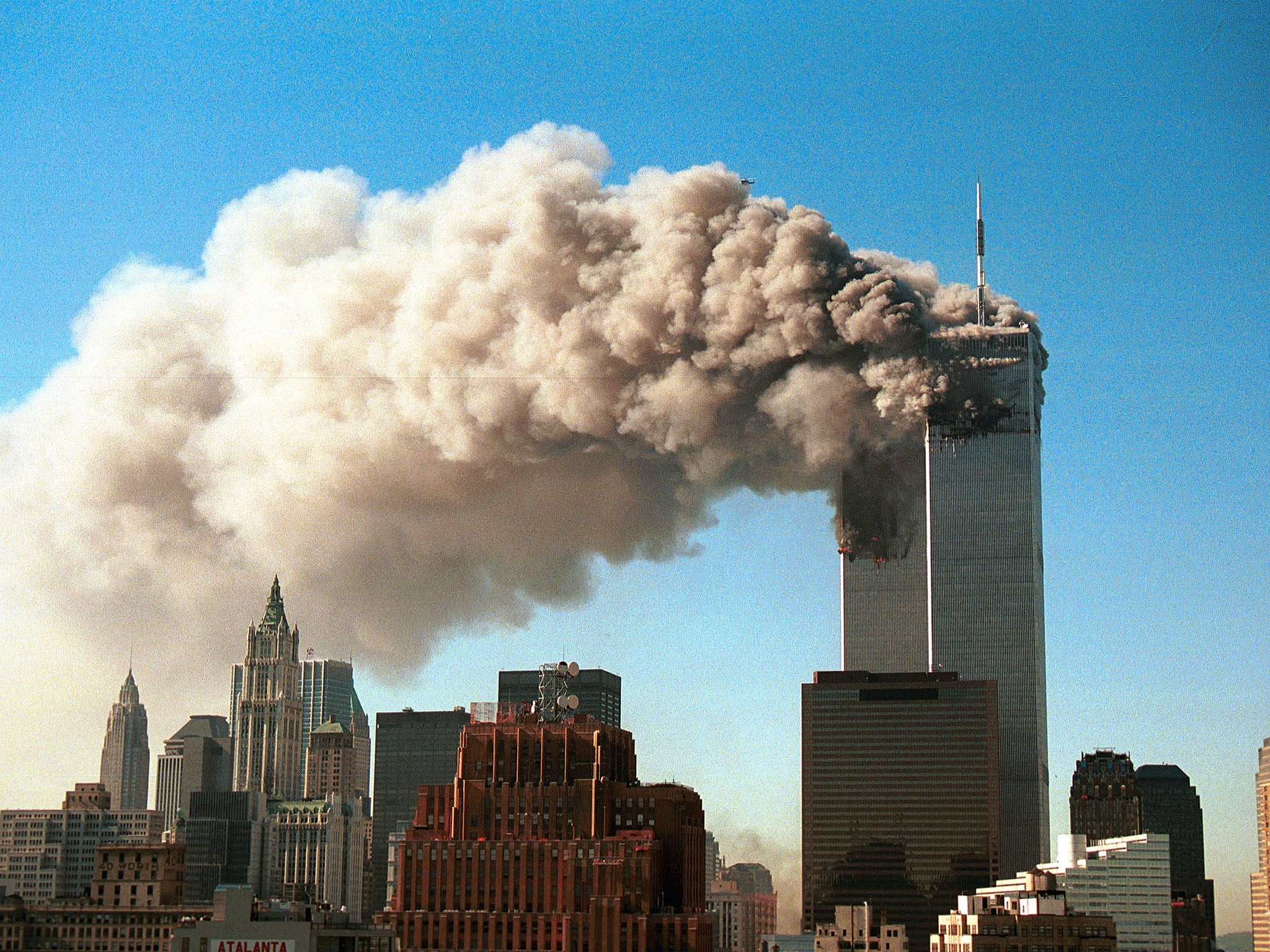
Tony Blair was also partly sold on this strange story of collusion between fundamentalist Sunni religious fanatics and with the Iraqi Ba'ath party, a secular organisation ruling a predominantly Shia nation. “We do not know of evidence linking Iraq to al-Qaeda in circumstances concerning the 11 September attack. However... we do know of links between al-Qaeda and Iraq,” he told the Commons in January 2003.
But this was wishful thinking. Richard Clarke, who at the time was US National Co-ordinator for Security and Counter-Terrorism, admitted in his memoirs that after the World Trade Centre was bombed by al-Qaeda in 1993, “I wanted the World Trade Centre attack to be an Iraqi operation so we could justify re-opening the war with Iraq - but there was no good evidence leading to Baghdad's culpability.”
The same mind-set evidently took hold in Washington and in Downing Street in 2001, but no matter how they wished it, these “links” did not provide a credible cause for war.
Nonetheless, Saddam Hussein was the only dictator in the world with a proven record for using poison gas against his own people. His was also the only regime known to have tried to build a “super gun” capable of hitting targets 600 miles away. (Its designer, Canadian artillery expert Gerald Bull, was murdered in Brussels in 1990.) There was also evidence that the Iraqis had tried to develop a nuclear bomb. As part of the terms imposed on a defeated Iraq in 1991, the UN Security Council had ordered Iraq to destroy or render harmless all its weapons of mass destruction (WMDs), under UN supervision. Inspectors had gone in, and large quantities of WMDs were destroyed. In March 1995, the Iraqi government delivered its “Full, Final and Complete Disclosure” of all its weapons, and demanded in return an end to sanctions imposed after the Gulf War.
Then the poisonous rivalries within Saddam Hussein's own family exploded in open conflict, and his two sons-in-law arrived in Jordan, demanding sanctuary. One of them revealed to the Swedish head of the inspections team, Rolf Edeus, the ruses that the government had used to deceive the inspectors and conceal their WMDs. (Both sons-in-law later made the strange decision to go back to Baghdad, where they were murdered.)
So when, by 2002, the Iraqis were claiming that they really had disposed of all their WMDs, neither Bush nor Blair was prepared to take the word of a dictator who had lied on this subject in the past. “The accumulation of weapons of mass destruction by Iraq poses a threat, a threat not just to the region but to the wider world, and I think George Bush was absolutely right to raise it,” Blair told the Australian Broadcasting Company in February 2002.
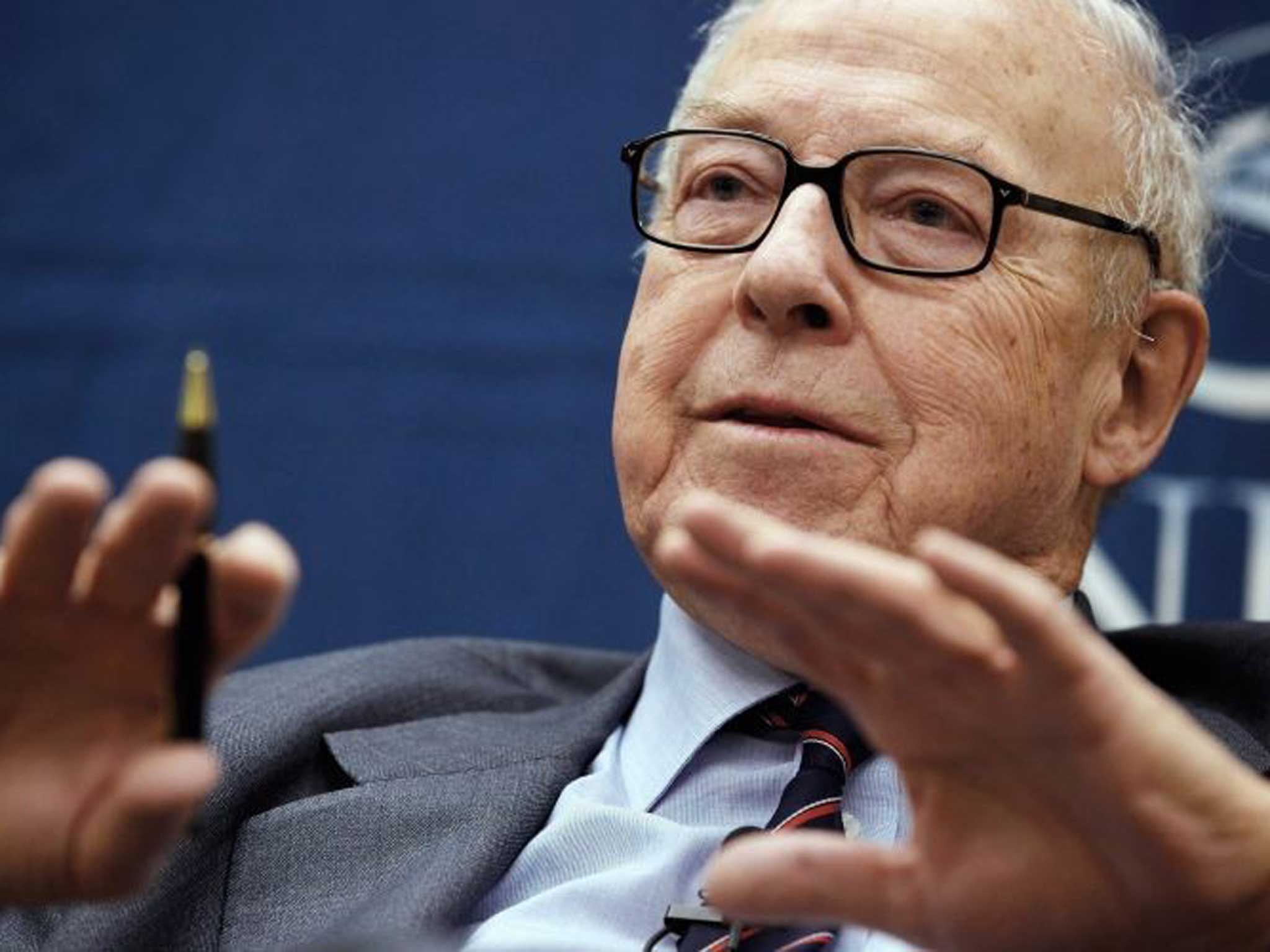
After the Crawford summit, British intelligence and the diplomatic corps knew what they had to do - they had to persuade the UN Security Council to issue an ultimatum that put the onus on Saddam Hussein to prove that his country held no WMDs, with the implied threat that if he failed, military action would follow. To do that, they needed to put together a credible case for believing that there were still WMDs in Iraq.
The diplomatic half of this mission was a startling success. On 8 November 2002, the UN Security Council unanimously adopted Resolution 1441, which gave the Iraq government “a final opportunity to comply with its disarmament obligations.” Though it did not specify what would happen if Iraq failed to comply, or who would make that judgement, getting the resolution adopted was all the same a considerable achievement.
“Negotiations on resolution 1441 were long and intensive,” Jack Straw told MPs. “It was some eight weeks in gestation, and that period was one of unrelenting high-level diplomatic contacts. The Prime Minister made frequent telephone calls to President Bush, and spoke regularly to other heads of government...but the success of that diplomatic activity owes much to the expertise and professionalism of many British diplomats and officials.”
The problems were in the other half of the mission, when it came to producing evidence that Iraq still held WMDs. This takes us into one of the most contentious questions of the whole Iraq debacle - did Tony Blair lie when he claimed that there were WMDs still in Iraq? Over the years, the suspicion that he did has hardened into certainty. To many people the entire case against the war is encapsulated in the two words: “Blair lied.” To doubt that he lied is to be an apologist for war.
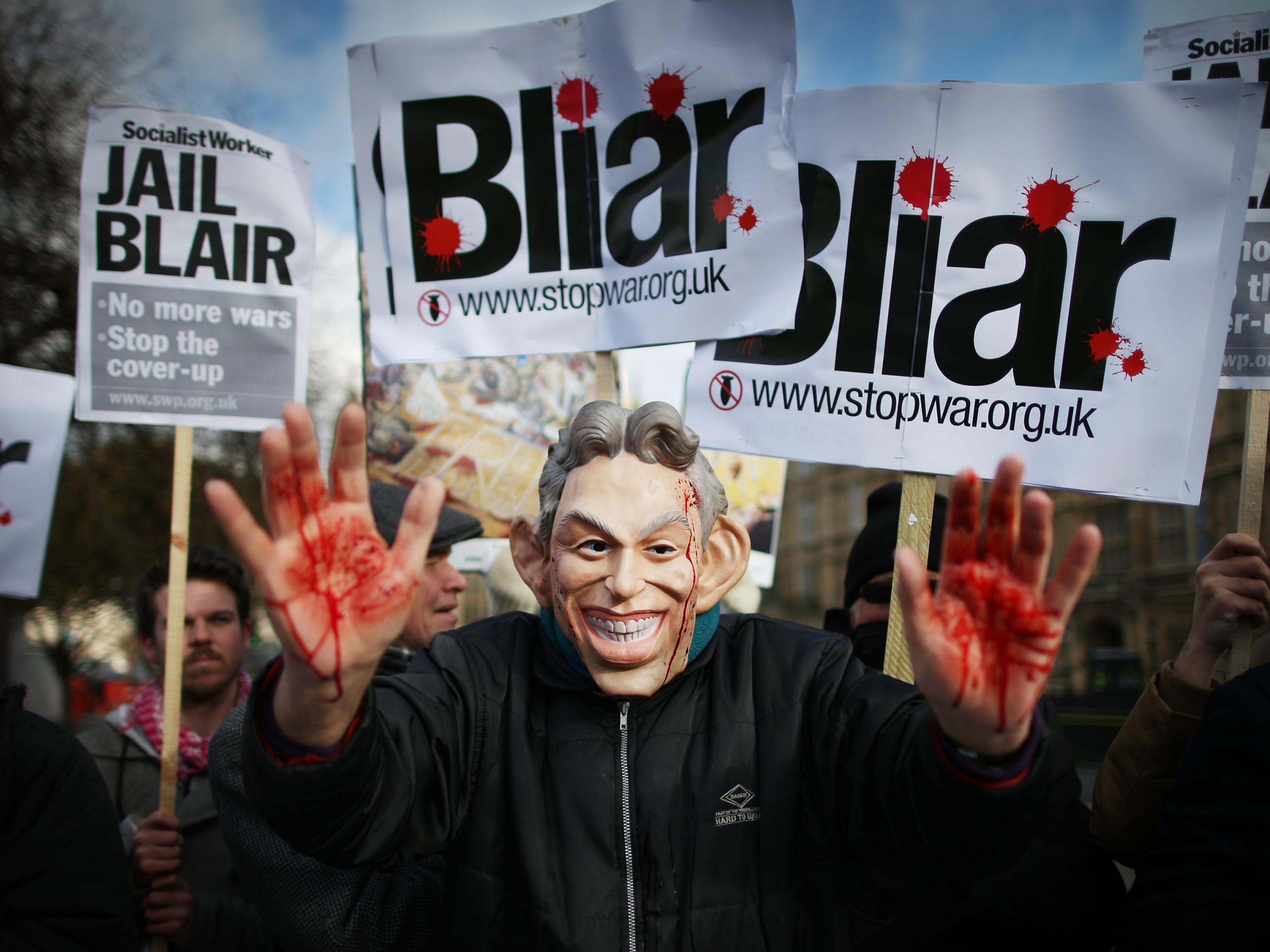
Yet in order to have lied, Blair would have had to have known that Saddam Hussein really had ordered the destruction of Iraq's stockpile of illegal weapons. Since he could not trust the Iraqi authorities to tell the truth, British intelligence or the CIA would have needed reliable informants inside Iraq. But the intelligence services had no network to speak of within that tightly ruled country, where the death penalty was routinely applied to anyone even suspected of spying. Consequently, the spooks relied heavily on Iraqi exiles, whose only chance of ever seeing their homeland again was if Saddam Hussein was removed by foreign intervention -a powerful motive for feeding Western intelligence exactly the information that could be passed on to political leaders who, like Richard Clarke in 1993, wanted to believe the worst of Saddam Hussein because they wanted to go to war.
Out of this circle of deception and self-deception came the formal document that is sometimes referred to as the “dodgy dossier”. To avoid confusion, it should be said that there were two dossiers that were called “dodgy” The second, the February dossier, more widely known as “dodgy”, was of no great consequence: it was a briefing document put together for the benefit of correspondents from Sunday newspapers who accompanied Blair on a trip to Washington early in 2003, which included details of Iraq's apparatus of repression that turned out to have been plagiarised from the internet. The number of people who received original copies of the February dossier could be counted on one hand. (I was one: sadly my copy, signed by a Downing Street spin doctor, has been lost).
The dodgy dossier that mattered was the one presented to Parliament on 24 September 2002 by Tony Blair, who told MPs that it proved that “the weapons of mass destruction programme is not shut down; it is up and running now.
”It concludes,“ he added, ”that Iraq has chemical and biological weapons, that Saddam has continued to produce them, that he has existing and active military plans for the use of chemical and biological weapons, which could be activated within 45 minutes, including against his own Shia population, and that he is actively trying to acquire nuclear weapons capability.“
But just as the Prime Minister could not know for certain that there were no WMDs left in Iraq, neither could he have known that there were any. He was not lying. He was presenting to Parliament a series of guesses made by the intelligence services - but he dressed them up as if they were hard facts backed by solid intelligence. He did not mention Cyprus in his speech, but the accompanying document included the assertion that ”Iraq possesses extended-range versions of the SCUD ballistic missile ...which are capable of reaching Cyprus.“
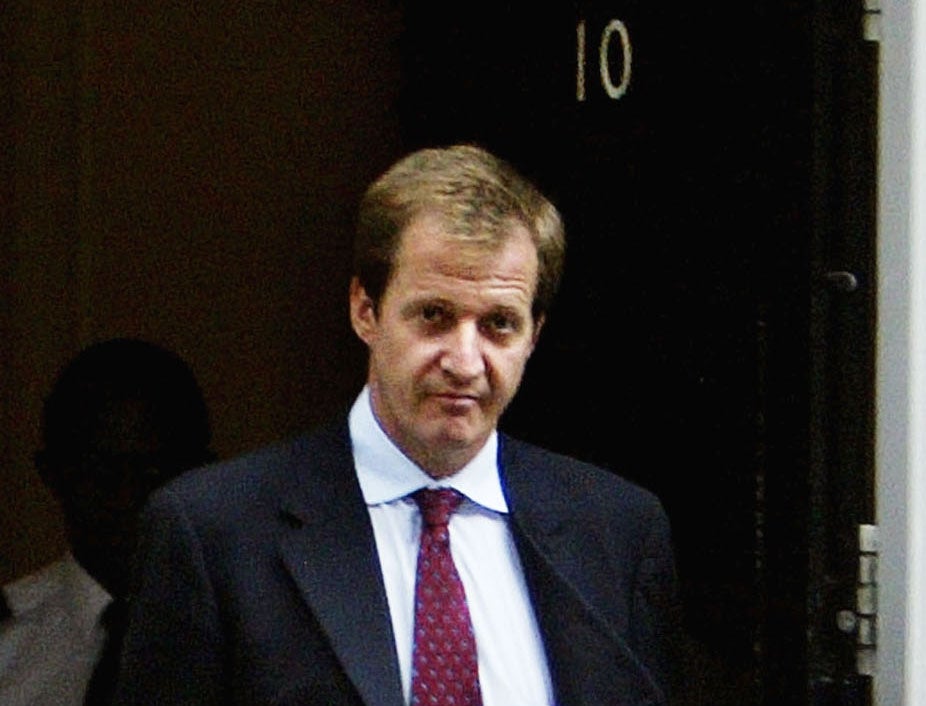
“45 MINUTES FROM ATTACK – Dossier reveals Saddam is ready to launch chemical war strikes” was the headline on that day’s London Evening Standard front page, the second sentence of which warned that Saddam ”is developing missiles that could reach British military bases in Cyprus.“ The obvious inference was that the Iraq regime was so heavily armed that it would take them only 45 minutes' preparation to start killing British soldiers. This would have been misleading even if everything that was in the dossier and the Prime Minister's speech had been accurate, because a weapon with the range of a Scud missile cannot be activated in 45 minutes (while those that could be were for internal, short-range use only). Government officials knew that, but did not correct the error.
When the Defence Secretary Geoff Hoon was asked during the subsequent Hutton inquiry why not, he replied: ”I have spent many years trying to persuade newspapers and journalists to correct their stories. I have to say it is an extraordinarily time-consuming and generally frustrating process.“ In other words, if journalists misinterpreted what was in the document that was their fault. Hard-pressed ministers and officials could not be expected to spend precious time correcting them.
In this case, of course, the misunderstanding perfectly suited the government's purpose. A Mori poll taken in the following days showed that 54 per cent of respondents said that the dossier had convinced them that Iraq was a threat to world peace, though 48 per cent still opposed military action. Another poll, in that weekend's Sunday Times, showed that 33 per cent thought the US and the UK should go straight ahead and attack Iraq. Almost twice that number said they would support action if it was authorised by the United Nations.
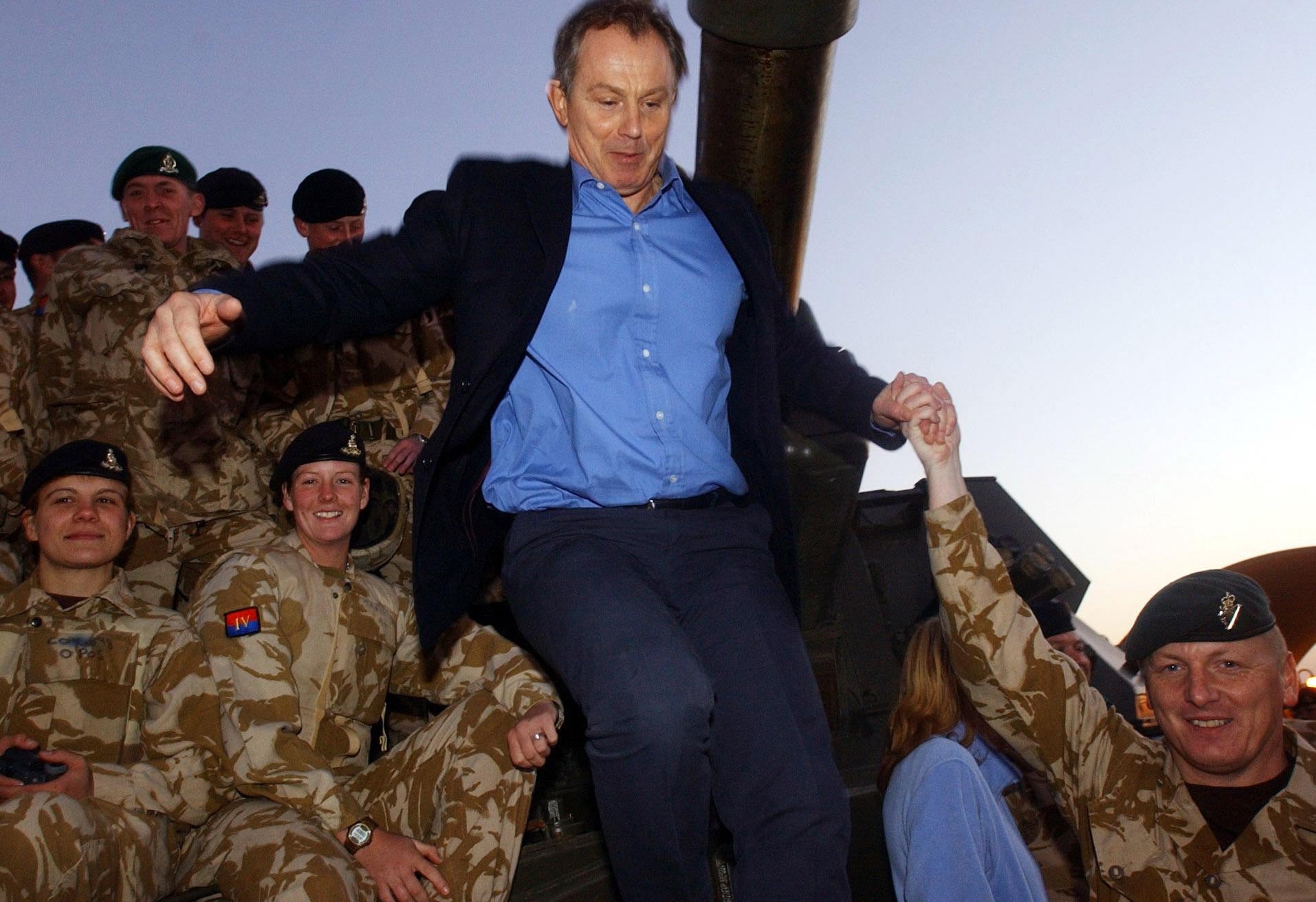
Meanwhile, the war's opponents were getting organised. Within Parliament, opposition was muted, because the Conservative leader, Iain Duncan Smith, was as committed as the Prime Minister to backing the US. But the Liberal Democrat leader Charles Kennedy and foreign affairs spokesman Menzies Campbell rushed back to Parliament from their party conference in Brighton on 24 September to warn that they were never going to support military action that was not sanctioned by the UN. ”Those of us who have never subscribed to British unilateralism are not about to sign up to American unilateralism now,“ Kennedy announced.
Outside Parliament, a fringe organisation called the Stop the War Coalition, dominated by an unusual mix of left-wing hardliners, was on the verge of assuming unprecedented importance. They organised an anti-war rally in Hyde Park on Saturday 28 September, with Tony Benn and Ken Livingstone among the speakers. It proved to be the biggest demonstration in London since the campaign against the poll tax, 12 years earlier. The police put the number at 150,000; the organisers claimed 350,000, including 100,000 Muslims.
After that drama there was a period of deceptive quiet. The Iraqis responded to UN resolution 1441 by allowing a team of weapons inspectors headed by Hans Blix into the country. On 7 December - the very day that the New York Times reported that the US would have assembled enough manpower and military kit in the Gulf to launch an invasion in January - the inspectors were handed a 12,000-page declaration asserting that there were no WMDs left in Iraq. The White House said that the document would have to be analysed to see if it was credible. On the same day, Saddam Hussein belatedly apologised to Kuwait for invading their country in 1990, a gesture which did not impress Kuwait's rulers.
By February, the Iraqis' claims and the weapons inspectors' visits had all become academic. Having built up a force in the Gulf big enough to overrun Iraq, President Bush had no intention of standing it down. Similarly, with the British invasion force also in position, Blair was not going to renege on his promise to stand ”shoulder to shoulder“ with the USA. All that remained was to see how many other governments could be persuaded to endorse what had, in effect, already been decided.
On the home front, Tony Blair had been engaged in what Alastair Campbell described as the ”masochism strategy“, by putting himself in front of those groups of people who were going to be hardest to persuade to support the war. It included, for instance, lunch with the senior executives and journalists of the Independent and Independent on Sunday, at the end of which Campbell was invited to go around the table and guess which of those present were for or against the war. He learnt that the newspapers' then proprietor, Tony O'Reilly, his wife, the company's chief executive, and the managing director all supported the war, but every journalist present was against.
Blair also put himself in front of hostile or sceptical television audiences. Repeatedly, the message came back that an invasion launched without the clear support of the UN Security Council was going to meet serious opposition - whereas if the US and UK could secure a second UN resolution authorising war, a substantial part of the opposition would melt away.
Blair continually held out the possibility that that might happen, but it was a chimera. Europe was no longer united. While Spain's Prime Minister Jose Maria Aznar was signed up for war, Chirac and Schröder were not. Since France was a permanent member of the UN Security Council, Paris's opposition ruled out any prospect of a UN-backed invasion. Bush and Blair were left having to argue that Iraq had not complied with resolution 1441, and that the only way to uphold the authority of the UN was to attack Iraq, whether the UN agreed or not.
Outside Parliament, the Stop the War coalition called a march and demonstration on Saturday 15 February, which proved to be the biggest that London had ever witnessed. By one estimate, the crowd numbered two million. On the same day, the streets of New York, San Francisco, Barcelona, Auckland, Vancouver and other cities were filled with protesters.
In Parliament, Charles Kennedy had acted as the principal voice of opposition, earning the contempt of Winston Churchill's grandson, the Tory MP Nicholas Soames, who described his insistence on a second UN resolution as ”the best impression that I've heard of Neville Chamberlain in many, many years“. The Liberal Democrats would harvest a reward for their opposition: at the following general election the number of Lib Dem MPs rose by 10, to 62, the biggest contingent of third party MPs since the collapse of the Liberal Party in the 1930s.
Within the Cabinet, two ministers were becoming more and more disengaged. Robin Cook was the more decisive, but Clare Short, the International Development Secretary, was the first to break cover. She volunteered to go on the BBC's Westminster Hour on 9 March, to announce that she would resign if the UK went to war without a second UN resolution. Blair was furious. ”This is disgusting, totally disgusting,“ he told Alastair Campbell. He considered sacking her, but decided not to, which proved to be an adroit move.
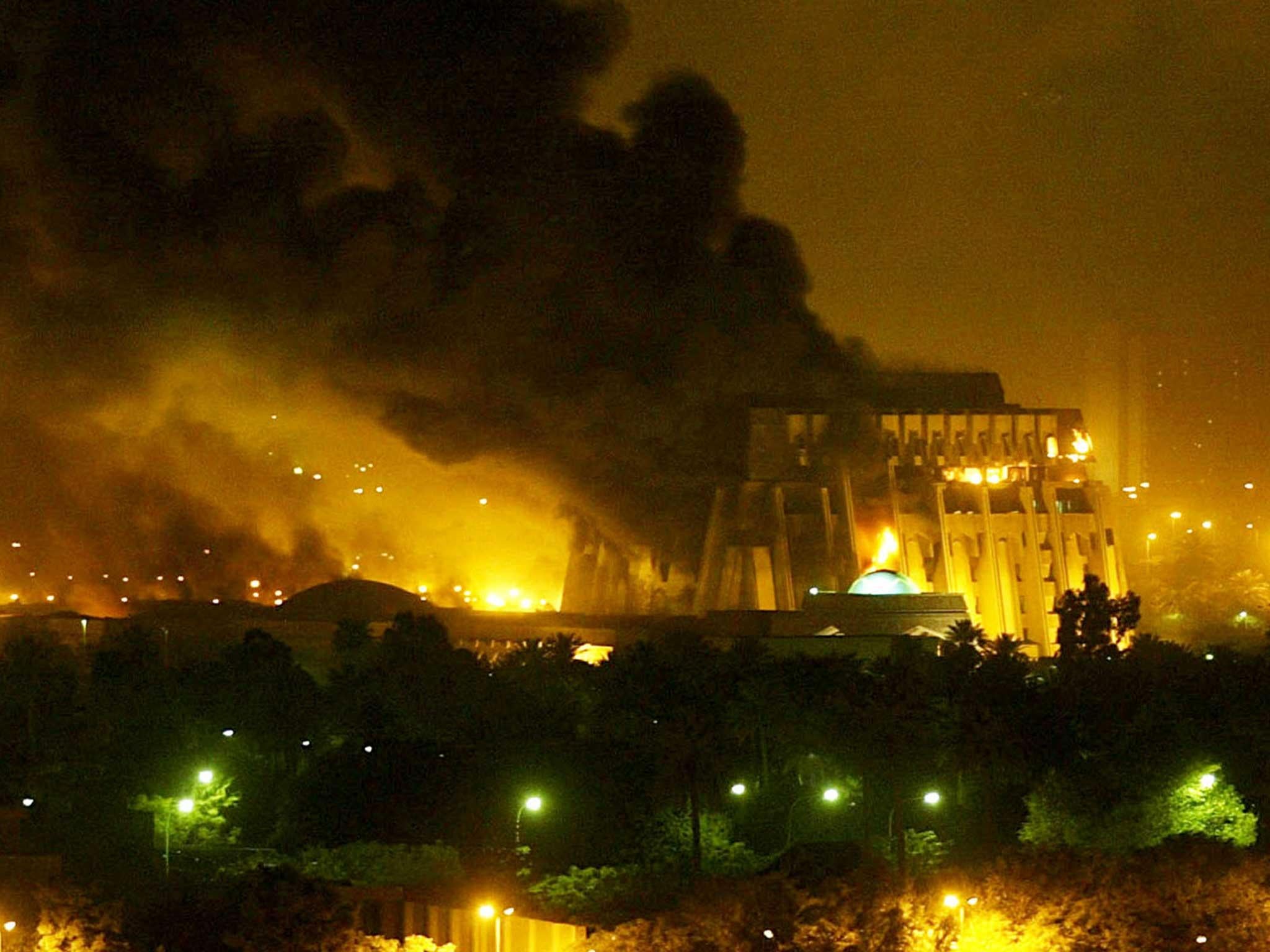
There was also the problem with the civil service. Much to Blair's annoyance, the Cabinet Secretary, Andrew Turnbull, was insisting that he must have something which he could circulate around the civil service to assure them that there was legal justification for war. The Attorney General, Peter Goldsmith, drew up a long legal opinion about whether resolution 1441 was justification for war. Goldsmith did not want to create problems for Blair, but the lawyer in him had doubts, and the conclusion he came to was ambiguous.
On 11 March, Blair told Goldsmith bluntly that he did not want a ”detailed“ discussion in which the Government's leading law officer was prevaricating over the legalities. He feared that Robin Cook and Clare Short would seize on any comment the Attorney General made that implied that they might be engaged in an illegal war. That problem mysteriously resolved itself when Goldsmith had another think, and decided that the impending war was indisputably legal. He told the Chilcot inquiry later that he had changed his mind after talking with US lawyers.
When the Cabinet met on the afternoon of 17 March to hear Goldsmith's revised opinion, Robin Cook was not there. He had handed in his resignation a few minutes earlier, and had slipped out of Downing Street through a side door, much to the discombobulation of Clare Short, who was still making up her mind. That evening, Cook announced in the Commons, to applause, that ”with a heavy heart, I resign from the Government.“
The following day, Tony Blair took the unprecedented step of going before Parliament to seek approval for going to war. This was a first in British history. In previous conflicts, the Prime Minister or the monarch had declared war first and reported to Parliament afterwards. Blair could afford a Commons vote despite the spreading opposition on the Labour back benches, because he knew that the Conservatives would back him. He won the final vote by 412 to 149. The only ministers to join Robin Cook in resigning were John Denham, in the Home Office, and Lord Hunt, a junior health minister. Despite the threats she had made, Short voted with the Government and stayed in her job. She resigned the following May.
Blair also needed Parliament's support because of the mood in the country, which Cook had summed up as: “They do not doubt that Saddam is a brutal dictator, but they are not persuaded that he is a clear and present danger to Britain.”
Join our commenting forum
Join thought-provoking conversations, follow other Independent readers and see their replies
Comments
Bookmark popover
Removed from bookmarks